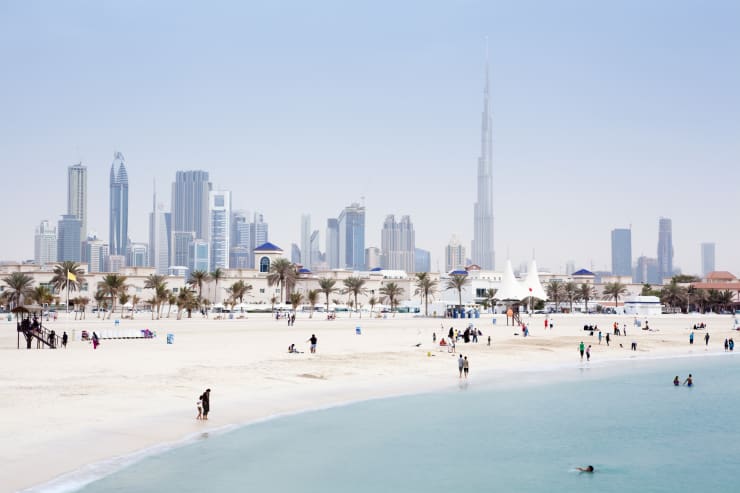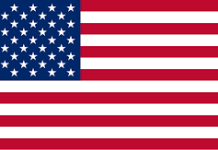- Pope Francis marked the first-ever visit by a head of the Catholic Church to the Arabian Peninsula, beginning a three-day tour of the United Arab Emirates (UAE) meant to celebrate tolerance and promote interfaith dialogue.
- Francis was greeted by Abu Dhabi’s Sheikh Mohammed bin Zayed Al Nahyan on Sunday, and will deliver a mass to 135,000 worshippers at the emirate’s Zayed Sports City Stadium on Tuesday morning.
Pope Francis marked the first-ever visit by a head of the Catholic Church to the Arabian Peninsula, beginning a three-day tour of the United Arab Emirates (UAE) meant to celebrate tolerance and promote interfaith dialogue.
Francis was greeted by Abu Dhabi’s Sheikh Mohammed bin Zayed Al Nahyan on Sunday, and will deliver a mass to 135,000 worshippers at the emirate’s Zayed Sports City Stadium on Tuesday morning.
سعدت وأخي محمد بن راشد بلقاء البابا فرنسيس بابا الكنيسة الكاثوليكية في دار زايد وطن التسامح، وبحثنا معه سبل تعزيز التعاون الثنائي بما يرسخ قيم التحاور والتسامح والتعايش الإنساني وأهم المبادرات التي تعنى بتحقيق السلام والاستقرار والتنمية للشعوب والمجتمعات. pic.twitter.com/XOv2NGcgn3
— محمد بن زايد (@MohamedBinZayed) February 4, 2019
Mohammed bin Rashid and I have signed the foundation stone for construction of a new ‘Church of Saint Francis’ and ‘Mosque of Grand Imam Ahmad Al-Tayyeb’ in Abu Dhabi. They will serve as beacons to uphold the values of tolerance, moral integrity and human fraternity in the UAE. pic.twitter.com/ktrmpiZTBg
— محمد بن زايد (@MohamedBinZayed) February 4, 2019
The mass, officials and many locals say, highlights the religious openness in the UAE — an officially Muslim country that implements Islamic law — particularly compared to its more conservative Gulf neighbors. A number of mosques, churches and Hindu temples serve the country’s diverse and predominantly non-local population, and more recently a house-turned-synagogue has been recognized by Emirati authorities. The UAE’s first catholic church was built in Abu Dhabi in 1965. Neighboring Saudi Arabia, by contrast, does not allow churches to be built anywhere in the country.
But while the trip is meant to celebrate fraternity among religions, Francis issued remarks touching on the country’s foreign policy just before leaving the Vatican on Sunday.
He criticized the bombardment of Yemen, the Arab world’s poorest country, urging for peace and an end to the war in which the UAE and Saudi Arabia have become key players. The UN says that airstrikes led by the countries and their Gulf allies have caused the majority of civilian deaths in the country, which now number well above 10,000.
“Let us pray strongly because they are children who are hungry, who are thirsty, they don’t have medicine and they are in danger of death,” the pope said during his regular Sunday mass before departing for Abu Dhabi. “The cry of these children and their parents rises up to God.”
The timing of the remarks — before actually entering the Gulf — served to spotlight an issue about which the pope appears passionate, while avoiding the diplomatic awkwardness of what could be seen as criticism of his hosts while in the UAE.
The Saudis and Emiratis, along with regional partners and with logistical support from the U.S., launched an offensive in Yemen beginning in 2015 in support of its ousted President Abed Rabbo Mansour Hadi, who fled after Houthi rebels believed to be backed by Iran took over the capital Sanaa. Both sides have been accused of war crimes by various international groups.
The pope will be taking part in a multi-religious conference sponsored by the UAE-based Muslim Council of Elders, an organization aimed at promoting a moderate brand of Islam to counter religious extremism.
The initiative was created by Sheikh Ahmed el-Tayeb, the grand imam of the Al-Azhar University in Egypt, which is a thousand-year-old center of Muslim scholarship and clerical training considered one of the holiest seats of Sunni Islam. El-Tayeb also greeted the pope on his arrival in Abu Dhabi.
The visit is also being promoted as part of the UAE’s designation of 2019 as the “Year of Tolerance,” an initiative led by UAE President Sheikh Khalifa bin Zayed.

The UAE is home to some 1 million Catholics, the bulk of whom are Filipino and Indian nationals, news agency Reuters reports. Another 5 percent of its population is Hindu. Emirati leaders have sought to draw attention to the oil-rich country’s diverse demographics and accessibility to churches, temples and mosques, not least as a way of attracting the international business its economy relies on to survive. Of its population of 9 million, nearly 90 percent are expatriates, according to government statistics.
But rights activists routinely charge that it’s those very workers from South Asia that are hurt most by the country’s controversial labor laws. Filipinos and Indians, as well as Pakistanis, Bangladeshis, Nepalis and other groups make up most of the UAE’s laborers and service staff, whom the rights groups say are underpaid and often mistreated. Critics of the UAE government have asked whether the pope will address what’s been frequently reported as human rights abuses, heavy restrictions on civil liberties and harsh punishments for converting out of Islam or spreading Christianity to Muslims.
Critics also hold that the “Year of Tolerance” initiative belies the scale of arrests and detentions of activists carried out by the government, including those who have criticized the state on social media.
Advocacy group Amnesty International released a statement on Saturday saying, “We are calling on Pope Francis to raise the issue of their incarceration with his hosts, and urge their immediate and unconditional release.” UAE judicial authorities did not respond to requests for comment at the time of publication.














